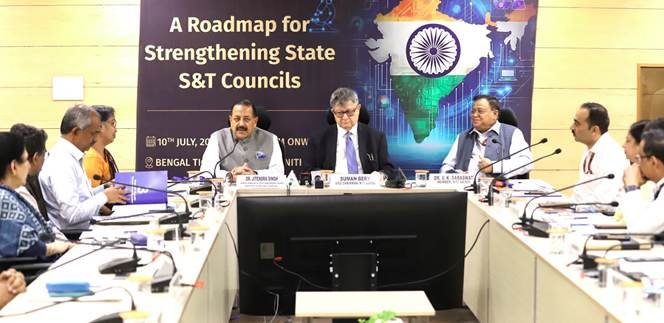Modi-Jaitley visits to re-invigorate dialogue

With the imminent visits in April to the UK of Finance Minister Arun Jaitley shortly followed by Prime Minister Narendra Modi, the “unbeatable combination” of the United Kingdom and India is once again back in the spotlight.
There are radical policy changes taking place in both countries. In India, a slew of fiscal and economic reforms have taken place and in the UK they are a result of the probable exit from the EU, says Richard Heald, Chief Executive Officer, UK India Business Council.
These changes make these visits particularly timely, writes Richard Heald, Chief Executive Officer, UK India Business Council, as a foreword to the March 2018 report on “The UK And India: Bilateral Investment Relationship”.
They offer a fresh chance to re-invigorate the inter-governmental dialogues between the UK and India at the highest levels.
UK and Indian businesses continue to identify and develop opportunities in each other’s economies – together and individually.
The old adage that “time and tide wait for no man” remains hugely relevant in today’s business world.
And while much newsprint is focused on the volatility of the visible trade numbers, this metric remains only one measure of trade and commercial activity and one which is increasingly irrelevant in the world of commercial cross border supply chains, foreign direct investment, institutional and private equity funds flows.
The recent announcement that the UK can commence negotiating its own bilateral Free Trade Agreement in the transition period post March 2019 will no doubt spur further action between the Indian and UK governments.
In practice, such a treaty will take time. The continued progress on the ease of doing business in both countries holds far more immediate relevance and value.
Further progress on GST or application of taxes in India or on Tier 2 visas in the UK would have an immediate impact on perceptions and operating margins within the private sector.
At the same, we would urge both governments to continue to give support to Small and Medium Enterprises (SMEs) of both countries to understand the operating environments of India and UK, to begin the journey to sustainable efficiency and profitability through internationalisation.
This would be sensible future-proofing of both economies and the bilateral relationship. We commend the Indian government’s Access India Programme as being an effective intervention in this area.
There are often reasons not to do something – in the UK one could point to uncertainties around Brexit and in India one could point to the forthcoming General Elections.
However, the momentum in both economies is undeniable. With new opportunities continually thrown up by the disruptive and foundational changes brought about by the technical advances under Industrial Revolution 4.0, the real question is, “how can I take advantage of this now?”
Opportunities
Emerging opportunities in sectors such as manufacturing, defence, and pharmaceuticals provide firm ground to further enhance the UK India investment relationship.
Exciting trends in digitisation, including the onset of 4-IR, are creating new investment opportunities. The rise of smart cities, the potential of FinTech, along with the start-up culture, has generated areas where investment potential is exponential but as yet largely untapped.
The operating environments in both countries are conducive to mutual investment relationships.
We should be realistic about the prospects about an early Free Trade Agreement. A continued focus on ease of doing business will pay more immediate dividends.
At the same time, a Bilateral Investment Treaty, which includes provisions to protect and promote FDI flows, would be a step toward securing the long-term UK-India trade and investment relationship.
Clear scope exists for a stronger bilateral relationship that mutually benefits both countries. Such a relationship would help close some gaps and enable the full potential of both the economies to be realised.
India’s and the UK’s appetite and willingness to accommodate the needs of global businesses continue as both governments push the pace of their country’s development.
Conclusion
The United Kingdom and India have deep-rooted economic ties. There is an existing robust bilateral investment relationship that is only going to improve in the coming years.
A fast-growing economy, important structural reforms such as GST, improvements in the Ease of Doing Business (EODB) in India, and programmes such as “Digital India” and “Make in India” establish India as a compelling market and investment destination.
The UK remains firmly within the G7, underpinned by a large, open and attractive market. The UK is home to the world’s leading research. It has some of the world’s top universities, is the European hub for innovation and technology start-ups, and remains the world’s leading financial centre.
It benefits from a renewed top-down focus on economic competitiveness and commercial relationships with countries outside the EU.
UK businesses are engaged across all sectors and Indian firms in the UK are hungry for the upstream capabilities and technologies which the UK is so skilled at developing. And, as both economies become more digitally enabled and “data rich”, new opportunities are constantly emerging.
The UK India Business Council and its members continue to engage with the UK Government and the Union Government in Delhi and State governments across India on bilateral market access and ease of doing business issues.
Since 2000, the UK has been the largest G20 investor in India, investing GBP17.5 billion. Of the 600 UK businesses present in India, almost 60% operate in two sectors: advanced engineering & manufacturing, and financial & professional services.
India is routinely among the top five investors in the UK. Currently, there are around 800 Indian businesses in the UK with combined turnover of GBP47.5 billion. In 2017, 55 of the fastest-growing Indian companies in the UK achieved an average growth of 31%, according to the UKIBC report. fii-news.com









